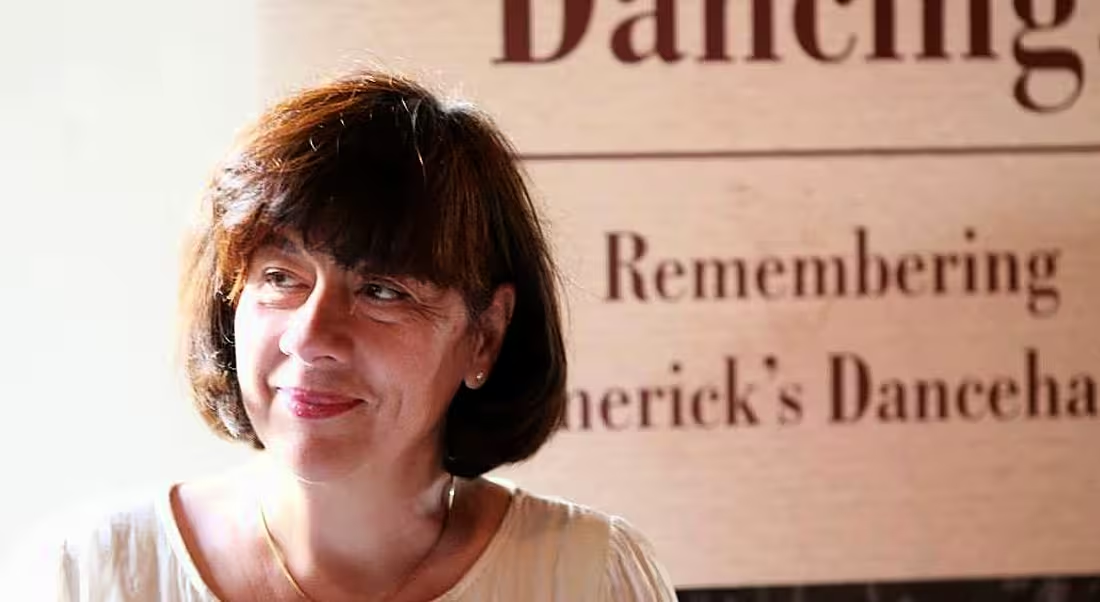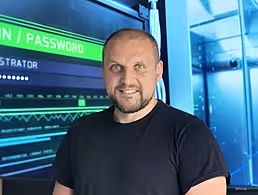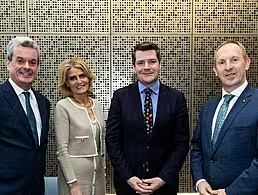You may have sat in a crowded theatre listening to a lecturer waxing poetic on their subject. It may even have seemed like an easy job to you. But what is it really like to be a university lecturer?
Gabriela Avram, lecturer in the Department of Computer Science at University of Limerick, gives us a glimpse of a day as a teacher and researcher.
What is your role within University of Limerick?
I am a lecturer in digital media and interaction design, and senior research fellow at the Interaction Design Centre.
If there is such a thing, can you describe a typical day in the job?
I usually get up very early – 6 or 6.30am. If I am working on a paper or proposal, then there’s usually something I would have scheduled the day before to work on before anything else. I usually go through my to-do list and prepare for the day’s lectures and meetings before I leave the house.
Most days, I lecture, meet with students I supervise, have Skype calls for the projects I work on, go to internal meetings, prepare for lectures, reply to emails, read assignments, and so on.
Then, at home, after dinner, I finally get to read things from my field for an hour or two, reply to emails that need a more elaborated response and plan my next day.
What types of project do you work on?
My area of expertise is human computer interaction so, at University of Limerick, I’m studying how people interact with technology and what the impact of technology is on their work and on their daily lives. Rather than looking at people in isolation, I am interested in studying communities, in how they adopt and shape their tools, and how their tools are supporting or preventing them in reaching their goals.
And, every now and again, I get to design something cool, in collaboration with my colleagues or my students.
In this context, we recently received funding to co-ordinate a COST Action for the next four years, titled From Sharing to Caring – Examining Socio-Technical Aspects of the Collaborative Economy.
There are 14 organisations from 11 European countries and one from Australia involved so far: universities, research institutes, businesses and NGOs. Our main objective is to develop a European network of actors – scholars, practitioners, communities and policy-makers – to focus on the development of collaborative economy models and platforms.
We keep hearing about the sharing economy (with Airbnb and Uber being the best-known actors in this field), which is actually not about sharing at all. It is a centralised business model made possible by the existence of a digital platform. More recently, the flaws of this model have started to emerge and the initial enthusiasm is slowly turning into criticism.
We decided, instead, to focus on the collaborative economy, which puts the emphasis on social innovation. It aims to create a more sustainable economic and environmental model, where sharing access to goods and services allows for a more efficient and sustainable utilisation of resources.
At European level, we see a growing number of initiatives – housing co-operatives, community gardens, food co-ops, tool libraries, skill-swapping arrangements and other citizen initiatives – that use digital technologies for collaboration, communication and co-ordination purposes. In many of these cases, reusing, recycling, mobilising existing resources and initiatives have a real impact on the local economy.
This shift, facilitated by the availability of digital platforms, has a wide range of implications, ranging from economic and legal ones to social and technological ones. In this project, we will be focusing on the latter.
What skills do you use on a daily basis?
Difficult to say, as they became so ingrained in what I do that I don’t think about them as skills anymore. I love writing code – that was my dream job before joining academia – but, right now, I don’t get the chance to do it anymore.
Time and people management are vital for the projects I work on, and so is critical thinking. I use storytelling in my lectures to grab my students’ attention.
Writing is vital for academics. It’s ‘publish or perish’ and, in order to publish, we have to write and rewrite a lot.
Mentoring students, which is seldom an easy job.
Online research – something I enjoy and I am very good at.
What is the hardest part of your working day?
Dealing with unplanned events. The email that arrives 10 minutes before my lecture asking for an urgent reply. The student who knocks on my door asking for help without a previous appointment, because he or she is in a crisis situation.
And, with the smartphones in our pockets, we are always on, even outside work hours.
Do you have any productivity tips that help you through the working day?
Years ago, I was doing field work at an IBM site in Germany. The person I was interviewing in the context of a project showed me his online calendar. It was absolutely packed! He confessed he blocked time for reading, preparing presentations and other activities months in advance, otherwise his colleagues would schedule meetings in any available slot.
I am trying to do the same here at University of Limerick: to prioritise time for research, to schedule my meetings with students I supervise back-to-back, and to allocate time for reading. Otherwise it doesn’t happen, and I arrive home at 6pm with a long to-do list for the rest of the day.
When you first started this job, what were you most surprised to learn was important in the role?
That presenting up-to-date information to students is not sufficient. I learned that I needed to put on a performance, to tell stories, to challenge their assumptions, to ignite their curiosity and make them work with me if I wanted to teach them anything.
How has this role changed as this sector has grown and evolved?
I used to see myself as an early adopter of new technologies, especially when it came to social media, until the day when a student had to explain Snapchat to me.
I realised that the pace of new applications coming out makes it impossible to keep up with everything. Now I frame my teaching as a mutual learning experience: I learn from my students about new apps and their innovative uses, and I help them see beyond the hype, to appreciate the new in the context of the historical evolution of digital tools.
What do you enjoy most about the job?
Doing research. Being able to choose, or formulate projects I want to work on. Collaborating with colleagues from all over the world. Feeling part of the global human computer interaction research community, while working on projects involving local communities. And transmitting this enthusiasm for research to my students, who, wherever they go, make me proud.
Looking for jobs in tech or science? Check out our Employer Profiles for information on companies hiring right now.




